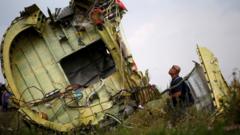The Nigerian university entrance exams faced severe technical glitches, leading to a shocking low pass rate and the heartbreaking suicide of a student. Nearly 80% of candidates scored below the required threshold, prompting widespread outrage and calls for accountability.
Nigeria's University Entrance Exam Crisis: Technical Failures and Personal Tragedies

Nigeria's University Entrance Exam Crisis: Technical Failures and Personal Tragedies
After a significant technical failure during university entrance exams, many students face dire consequences, including one tragic suicide.
Nigeria's educational system is in turmoil following a catastrophic university entrance exam that has left students reeling from failed expectations. The Joint Admissions and Matriculation Board (JAMB) acknowledged a significant "technical glitch" that affected results this year, with nearly 80% of the 1.9 million students scoring less than the 50% required to secure university admission.
These exams were marred by numerous issues including students' inability to log in, blank questions on the screen, and power outages disrupting their ability to complete the tests. This crisis culminated in an unthinkable tragedy—the death of 19-year-old Faith Opesusi Timileyin, who reportedly took her life after failing to achieve the scores needed for university admission for the second time.
Faith's heartbreaking story highlights the growing despair among students in Nigeria. Her father revealed to the BBC that she was overwhelmed with disappointment after receiving only 146 out of 400 marks, a drop from her previous score of 193, which deepened her sense of failure.
Across the nation, students like Favour Eke recounted their harrowing experiences during the exam, detailing missing questions and technical glitches that hindered their performance. A student from Abuja recalled logging into another student's profile, further complicating an already stressful situation. These issues have left many students uncertain of their futures, with Favour noting that this was her third attempt to pass the crucial exam.
JAMB has expressed regret over the situation, admitting the "painful damage" caused by their system failures. During a recent press conference, the head of JAMB, Ishaq Oloyede, became emotional while addressing the situation, announcing plans for retakes for about 380,000 affected candidates. These retakes are set to begin soon, but critics have called for greater accountability from the examinations body.
Public outrage has amplified in recent days, with many demanding the resignation of Oloyede and calling the incidents a form of "educational sabotage." Political figures and activists have echoed these sentiments, stressing that the issues raised highlight the need for immediate reform in Nigeria's educational system. The fallout from this year's examination crisis continues to unfold, leaving students and families in a state of distress and uncertainty.


















